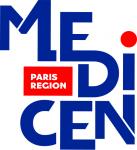Biomimetic Engineering Design of Biohybrid Soft Nanorobots to Combat Antimicrobial Resistance and Advance an Integrated Understanding of Illness
| ABG-134270 | Thesis topic | |
| 2025-11-07 | Public funding alone (i.e. government, region, European, international organization research grant) |

- Biotechnology
- Materials science
- Physics
Topic description
About the Project
Bacterial contamination and antimicrobial resistance (AMR) have progressively emerged as alarming public health concerns. For decades, these issues have been primarily addressed through the development and refinement of chemical therapeutics; however, such strategies, largely based on modifying existing compounds, are now approaching their limits in both effectiveness and safety. This PhD project aims to address this challenge through biomimetic engineering design, combining predictive in silico modelling with machine-learning techniques and microfluidic engineering to develop nature-inspired soft-nanorobots. Simultaneously, the research will initiate the development of a biomimicry-based framework with public health practitioners, community members and those with lived experience to promote a new understanding of biomimicry as a design principle to support engagement and implementation of the technology for future practice. Overall, these activities will contribute to advancing the design of technologies and frameworks that incorporate scientific, clinical, and community perspectives, fostering a more comprehensive understanding of illness and AMR.
This project combines machine-learning-augmented simulations and microfluidic engineering to explore the biomimetic design of antimicrobial nanotechnology. The engineering design will be supported with practice-based research to develop new ontological thinking and knowledge creation processes through integrating engineering and public health disciplines.
You will be hosted at UCL Arts & Sciences and collaborate with UCL Chemical Engineering and work closely with experts in in-silico engineering and applied machine-learning (Dr Francois Sicard), complex multiphase flows (Prof Panagiota Angeli), and pharmacy practice (Dr Ranjita Dhital).
The successful applicant should have or expect to achieve a Masters-level degree (1st or 2:1) in a relevant subject, e.g., Chemistry, Physics, Natural Sciences with an interest in interdisciplinary research in machine-learning-augmented computer simulations and experimental chemical engineering and are motivated by implementing sciences and practices related to public health impact of healthcare nanotechnologies.
Application open until 5th, January 2026 (13:00 UK time)
Studenship is expected to start on the 1st, October 2026
Additional information about the project: https://ucl-epsrc-dtp.github.io/2026-27-project-catalogue/projects/2531bd1604.html
See the UCL EPSRC Landcape Award (UELA) website for details on how to apply with the Project ID - 2531bd1604: https://www.ucl.ac.uk/epsrc-doctoral-training/prospective-students/ucl-epsrc-landscape-award-uela-studentships
Funding Notes
This UCL EPSRC Landcape Award (UELA) Studentship is open to both Home and International fee status students, however EPSRC caps the number of International students and competition for this place will be particularly strong. The studentship is expected to start on 01-Oct-2026 unless exceptional circumstances require an alternate start date. Exceptional circumstances include, but are not limited to, disability and caring responsibilities.
Starting date
Funding category
Funding further details
Presentation of host institution and host laboratory
UCL Arts and Sciences offers new wave liberal arts and sciences degrees. Our degrees combine Natural sciences, social sciences, and arts and humanities. We provide interdisciplinary education and innovative research that addresses the major challenges of the 21st century.
Our interdisciplinary research environment will enable you to develop research that is cogent, innovative, and which integrate combinations of sciences, arts, and societies. You will be supported by our diverse academic team and where necessary we will seek out specialist supervisors from across UCL, to acquire training, skills, and knowledge to become an independent researcher.
Examples of projects that join societies, arts and sciences include research into health, data science and philosophical ethics in understanding social justice, climate change science and media analysis and any other combination of disciplines that is needed for your interdisciplinary project. Join us to become part of our new and exciting postgraduate community.
Institution awarding doctoral degree
Graduate school
Candidate's profile
The successful applicant should have or expect to achieve a Masters-level degree (1st or 2:1) in a relevant subject, e.g., Chemistry, Physics, Natural Sciences with an interest in interdisciplinary research in machine-learning-augmented computer simulations and experimental chemical engineering and are motivated by implementing sciences and practices related to public health impact of healthcare nanotechnologies.
Vous avez déjà un compte ?
Nouvel utilisateur ?
Get ABG’s monthly newsletters including news, job offers, grants & fellowships and a selection of relevant events…
Discover our members
 ADEME
ADEME  SUEZ
SUEZ  TotalEnergies
TotalEnergies  Généthon
Généthon  ASNR - Autorité de sûreté nucléaire et de radioprotection - Siège
ASNR - Autorité de sûreté nucléaire et de radioprotection - Siège  ANRT
ANRT  Nokia Bell Labs France
Nokia Bell Labs France  Groupe AFNOR - Association française de normalisation
Groupe AFNOR - Association française de normalisation  Medicen Paris Region
Medicen Paris Region  Institut Sup'biotech de Paris
Institut Sup'biotech de Paris  ONERA - The French Aerospace Lab
ONERA - The French Aerospace Lab  Ifremer
Ifremer  Servier
Servier  Nantes Université
Nantes Université  Laboratoire National de Métrologie et d'Essais - LNE
Laboratoire National de Métrologie et d'Essais - LNE  Aérocentre, Pôle d'excellence régional
Aérocentre, Pôle d'excellence régional  Tecknowmetrix
Tecknowmetrix

